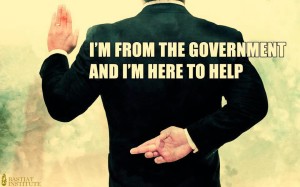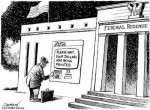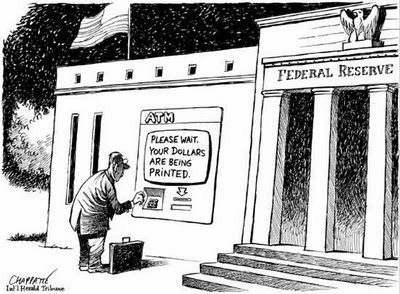submitted by jwithrow.
Qualified retirement plans have their roots in the Employee Retirement Income Security Act (ERISA) that was enacted in 1972.
The most common qualified retirement plans are the 401(k) and the IRA (individual retirement account). These plans allow individuals to contribute funds to their account on a pre-tax basis to be invested predominantly in stocks, bonds, mutual funds, and exchange traded funds. Taxes on investment gains are allowed to be deferred until distributions from the account are taken. Individuals may begin to take distributions without an early withdrawal penalty once they reach age 59.5. Any distributions prior to age 59.5 will be subject to a 10% early distribution penalty. Individuals are required to take a minimum distribution annually once they reach age 70.5. Distributions will be taxed at the individual’s ‘ordinary’ tax rate.
Mainstream financial thinking suggests that qualified retirement plans are the absolute best way to save for retirement because these plans enable you to invest funds on a pre-tax basis during your peak earning years and the investment gains can grow tax-deferred until retirement when your income is lower.
This way of thinking makes a number of assumptions.
The first assumption is that the investments held within the qualified retirement plan will consistently grow in value and they will not experience any significant losses to principal at any time which would serve to stunt the plan’s growth.
The second assumption is that the individual is not capable of effectively using capital during his/her peak earning years to develop diversified income streams that would provide significant income during retirement years. Maybe this would better be stated as the assumption that there is actually a “peak earning period” in an individual’s life.
The third assumption is that the rules governing qualified retirement plans will never change. Mainstream personal finance assumes that the early-distribution penalty will always be 10% and the qualified distribution age will always be 59.5. Mainstream personal finance assumes that ‘ordinary’ tax rates will always be what they are currently. (We say that there is nothing ordinary about the income tax at all!)
What’s overlooked here is the fact that qualified retirement plans are a government-created solution to government-created problems: Onerous taxation and a constantly devalued dollar that make it very difficult for the average American to save for retirement.
Pay very close attention to the language that must be used to discuss qualified retirement plans. In talking about these plans one must use words like allow, may, require, and penalty. In other words, these plans consist of permissions and requirements. People are given permission by the government to contribute funds on a pre-tax basis. And they are given permission to defer taxes on their investments. But they are required to leave all funds in the account until they reach a certain age or they will be penalized.
Any time permission is required to do something it follows that the permission could also be withdrawn at some point in the future. Otherwise one would not need permission to do whatever it is.
If you recognize that qualified retirement plans are a government-created solution to a government-created problem then a very important question must be asked: What happens if the government decides that there are bigger problems than Americans saving too little?
For example, what if government’s biggest problem became the need to finance out of control spending?
Cyprus and Poland have provided two possible answers to that question and the trend suggests that the rules governing qualified retirement plans could very suddenly become less favorable for the individuals using them at some unknown point in the future. The “myRA” proposal seems to be the first step in this direction.
So we can’t help but be skeptical of qualified retirement accounts. It just doesn’t add up. IRS approved tax shelters as a government solution to taxation and inflation? It seems to us that cutting spending, cutting taxes, cutting inflation, and returning to sound money would be a much better solution.
So we will continue to stay away from qualified retirement plans in favor of the IBC strategy for maximizing capital. This strategy, if implemented correctly, does not expose our principal to loss, it offers us access to our capital at any time for any reason, and it offers favorable tax treatment as well. All without requiring us to adhere to silly IRS rules about what we can and cannot do with our money depending on how old we are.
It just makes more sense.

















